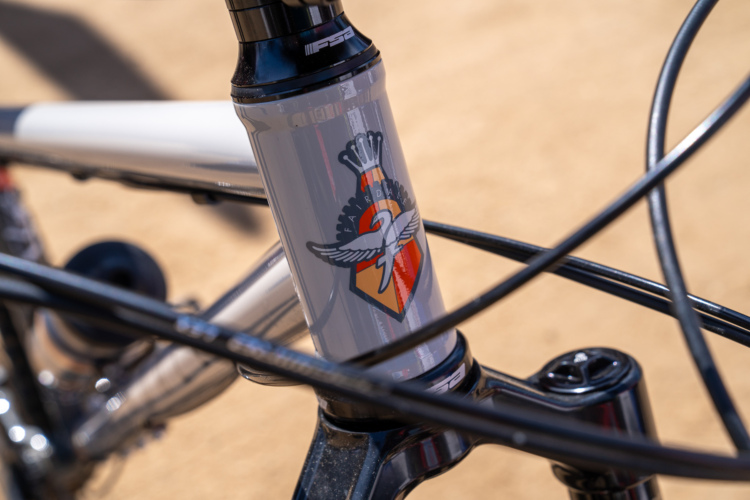
After decades of battling for access, and being ticketed and fined for riding singletrack trails, Chris Beratlis along with other members of the mountain bike community in Pleasanton, California are fed up. A few weeks ago, Beratlis decided to hold a protest ride at Pleasanton Ridge Regional Park. He gathered as many local mountain bikers as he could and they rode down the fire roads, shared with pedestrians, at Pleasanton Ridge on February 6.
“It’s just getting to a point where we keep hearing the same argument,” Beratlis told us over the phone. The park has historically taken the stance that mountain biking degrades the environment, Beratlis says.
East Bay Regional Parks District Chief Anthony Ciaburro cited this as a reason for issuing $275 tickets to mountain bikers riding off-limits singletrack ahead of the protest ride. “It was off limits, it was posted. There was environmental damage [that] was taking place, so we were at a place that we were going to issue tickets to anyone who came into that area,” he told a local CBS affiliate.
East Bay Regional Park District manages 73 parks around the San Francisco Bay Area, though most of the singletrack in the system is prohibited for mountain bikers. As more and more people have ventured outside during the pandemic, the increase of people on the fire roads and conflict between them has been palpable, Beratlis says. The protest ride was a way “to raise awareness that we can’t all use the same fire road and be happy. It doesn’t make sense.” Since the ride, local news outlets have taken notice and there is a glint of optimism that the parks may review their stance on mountain bike access.
Beratlis argues that concentrating everyone in one area is illogical. Not only are there more people in one area trying to avoid one another, but descending dirt roads can be dangerous for mountain bikers themselves with flat, loose turns which are typical of fire roads. Beratlis says that they’ve been trying to get access to singletrack for decades and the park hasn’t budged. With the closest mountain-bike-friendly singletrack as much as two to four hours away, it often makes more sense to risk a ticket and ride the trails illegally.
“Everybody rides illegally,” Beratlis says. “We’ve been doing it for 20, 30 years. It’s just the way it is. And I’m 54 years old, and everybody I know rides illegal singletrack because it’s the only place we can ride unless you go to Tahoe or drive three or four hours away to get to trails that are legal.”
What’s even more frustrating to local mountain biker and advocate Joel Shrock is the statement issued by the park’s assistant manager Carol Johnson after the protest ride: “We challenge mountain bikers to work with us and not create or ride on unauthorized, unsafe trails as was the case in Pleasanton Ridge that caused the need for enforcement last week with cyclists who were cited,” she told CBS 5.
Shrock started Bay Area Mountain Biking (BAMBI) which is an 8,000 member strong Facebook group that shares local mountain bike information.
Shrock called the park’s statement “frustratingly hollow.” He attended an East Bay Regional Parks District board members meeting on February 15 and held up multiple newspaper clippings from the past 20 years highlighting their access challenges and their attempts to work with the organization.
In the meeting, Shrock asked the board to suspend enforcement on “some of the bootleg trails across the park system until a meaningful trail plan can be implemented.” Other community members spoke out also, and added their stories about past advocacy attempts, and why cycling the parks has been important for their health.
At the end, Shrock said he felt positive about the meeting and that board members started to change their tune regarding mountain bike and even e-bike access. Shrock has been in the same boat as Beratlis and other mountain bikers, where he needs to drive several hours to ride singletrack trails. It’s counterintuitive to him that the parks have cited environmental issues as to why they won’t allow mountain bikes on most trails and instead he has to spend hours driving his vehicle to places where it’s allowed. Usually, it’s easier to just take the risk and ride the trails anyway.
Beratlis and Shrock remain optimistic after the board member meeting on February 15 though. Beratlis isn’t planning on any more protest rides at the moment, he told me over a text message. Board members reached out to him following the meeting and say they are trying to move forward with mountain bike access on singletrack. Beratlis is being patient and if access stalls again, they’ll be starting this dance once again.
East Bay Regional Parks did not return requests for comment.
















